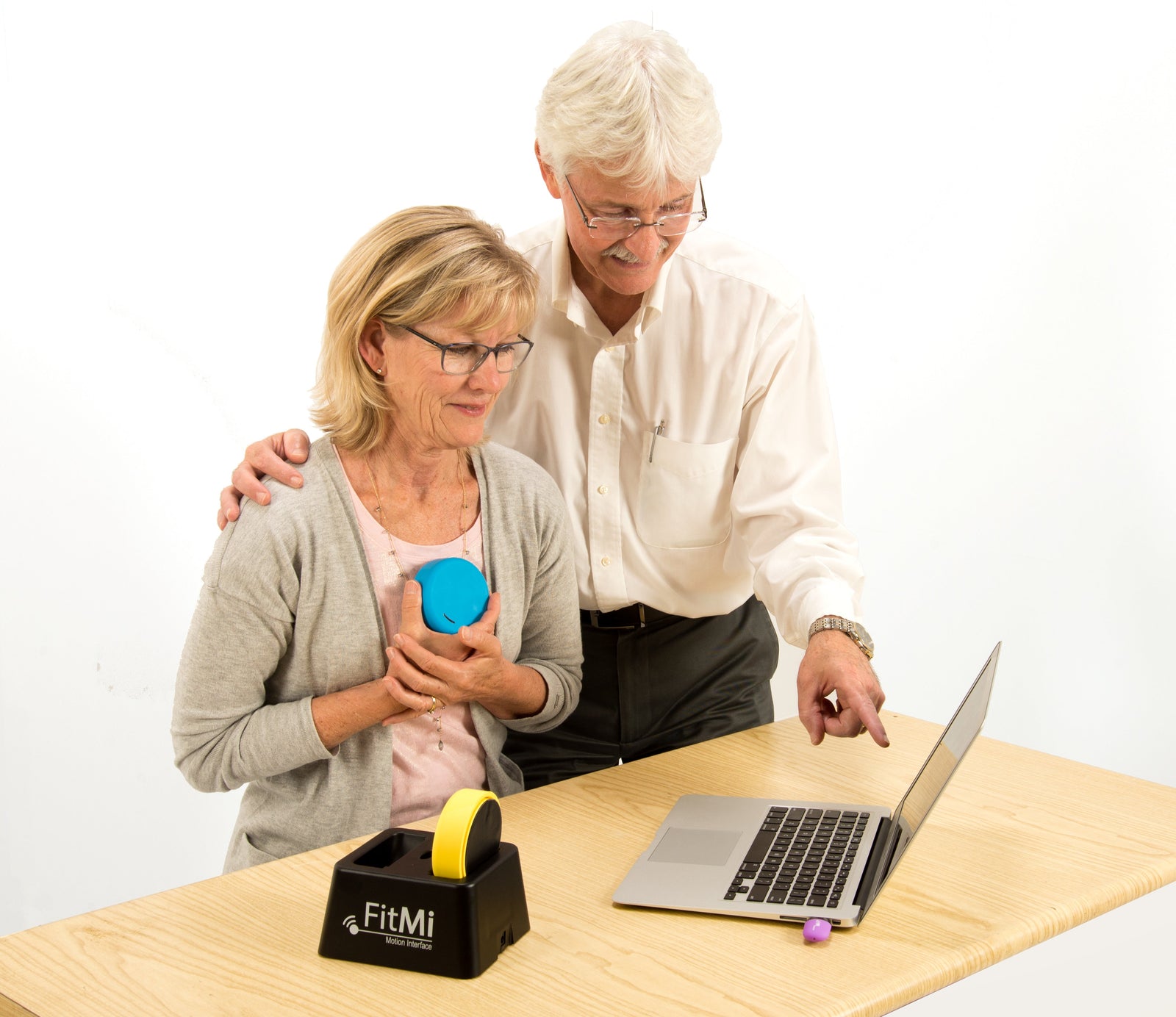Recovering from a stroke or neurological injury isn’t just about regaining strength—it’s about retraining the brain. That’s where FitMi, an interactive neurorehabilitation system from Flint Rehab, offers something unique: a dynamic, full-body rehab solution that encourages repetition, engagement, and real progress.
Whether you're a clinician looking to boost patient outcomes or an NDIS participant seeking at-home therapy, FitMi makes rehabilitation interactive, motivating, and measurable.
What is FitMi?
FitMi is a neuroplasticity-based rehabilitation tool designed to help people recovering from stroke, brain injury, spinal cord injury, or other neurological conditions.
The system includes two wireless “pucks” (motion-sensitive sensors) and a tablet app. As users perform exercises, the pucks track each movement and provide real-time feedback, guiding users through exercises tailored to their recovery needs.
FitMi adapts to each user’s ability and pushes them toward the next level with progressively harder exercises, making it effective for both early- and late-stage recovery.
Key Benefits of FitMi:
Repetition That Works
FitMi is built around one of the most important principles in neurorehab: high-repetition training. Studies show that thousands of repetitions are often needed to rewire the brain after injury. FitMi keeps users moving—often completing hundreds of reps per session, far more than typical therapy.
Whole-Body Engagement
With over 40 exercises targeting the hands, arms, core, and legs, FitMi supports a comprehensive rehabilitation program. It’s an all-in-one tool for users recovering from multiple impairments.
Motivating and User-Friendly
Unlike traditional paper-based rehab, FitMi turns exercises into interactive challenges. Users are scored, timed, and encouraged to beat their personal bests, helping to sustain motivation, especially during home-based therapy.
Clinician-Approved, Home-Friendly
FitMi is used in hospitals and clinics across the world, but it’s also simple and effective enough for independent use at home. Many NDIS participants have integrated FitMi into their recovery routine with impressive results.
Is FitMi Right for You or Your Client?
FitMi is most effective for people who:
- Have mild to moderate movement impairments in the upper or lower body
- Can follow basic instructions or use the tool with caregiver support
- Are you looking for a motivating way to do more therapy at home or in clinic
For those in the early stages of recovery or with severe spasticity, FitMi may still be useful but could require additional clinical support.

Real Results: FitMi in Action
FitMi has helped thousands of stroke survivors and people with neurological conditions get better results from their rehab. One user, recovering from a spinal cord injury, reported going from limited mobility to walking again after consistent FitMi training at home.
Clinics also see higher patient engagement and compliance when FitMi is added to therapy plans, especially for younger users or tech-savvy clients who thrive on feedback and goals.
How Rehab Technology Can Help
As an authorised supplier of Flint Rehab products in Australia, Rehab Technology can support both clinical and NDIS-funded home use of FitMi. We help guide product selection, assist with funding support documentation, and offer setup and training where needed.
